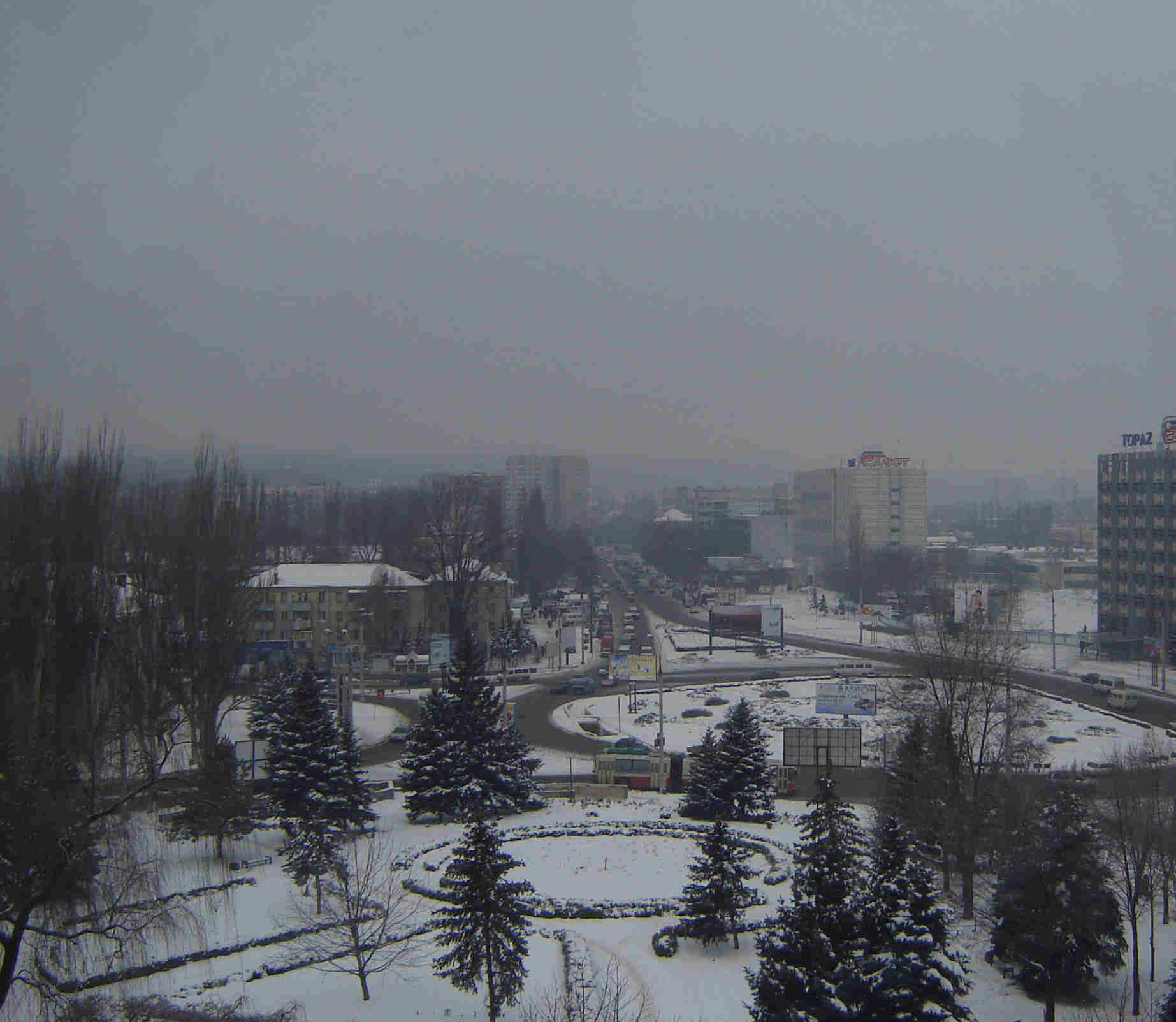|
|
The Moldova "Quasi-"Blog II: The Adventure Continues... |
|
| Links to all of my on-line ramblings and other useful information. | My preparations to come to Moldova and my first impressions of it | More on Moldovan Economics, social realities, transportation | More on Communist architecture, Martisurs, and Int. Women's Day | Spring finally comes to Chisinau and I am making trips around the country. | The end of the semester and exams at the university. |
|
Adventures of Dr. Chris Grant of Mercer University and 2006 Fulbright Scholar |
| 16 Feb...The end of a busy week...I have been here
a little over a month now and this was the busiest week I have had since
arriving. Wednesday 15 February was perhaps the busiest day of this
busy week. The day started out interviewing finalists for the Eurasia Undergraduate scholarship program for Moldovan university students to come to the U.S. to study for a year. The program is administered through a non-governmental agency known as the International Research and Exchanges Board (IREX). The interview panel consisted of four people me, a dean from Pennsylvania, an embassy staffer, and an alumna of an exchange program in the past. We had to determine the best six candidates from a pool of eighteen based on their leadership skills, their adaptability to living in the U.S., the educational achievements, and their English abilities. I will only say that I could have easily recommended all 18 to come--it was difficult to choose from among them. After spending the whole day in interviews, I joined my fellow Fulbrighters for a lovely dinner hosted by the U.S. ambassador to Moldova. Ambassador Heather Hodges came to Moldova after spending much of her career in Spanish speaking countries (she has been in the Foreign Service for 26 years). I have been very impressed by both the intelligence and the efforts of our foreign service officers here in Chisinau, it is not an easy job when every word you speak is analyzed for sub-context and meaning. The ambassador shared a story about how she was recently misquoted in a leading paper about Moldova and whether it was interested in joining NATO. The paper suggested that the Ambassador was pushing the Moldovan government to make a NATO application. You can read her response to the story here: http://www.usembassy.md/en-02102006.htm. The evening wound up with my joining my ISPRI students and some fellow faculty at a Valentine's disco at a local club. I did dance for a while until my feet and knees reminded me that I was closer to being 50 than I am to being 20. The students had really gone all out for the event and I was flattered to be invited to join them. I am working today on wrapping up some writing projects from home and in getting organized about what sort of things I would like to accomplish with my time here in Moldova. On Saturday night, I will be meeting some Peace Corps volunteers and want to hear more about their experiences. Chisinau is a big city and my impressions of Moldova are largely shaped by being in the Capital. I want to learn more about other parts of the country, as well, so I can try to put together the pieces of the Moldovan puzzle in my own mind. I am also working on a proposal to do some workshops with the Academy of Public Administration. I would like to do some work on planning, developing consensus models, and ethics--but we will see what winds up happening as I begin to flesh out the project. My final undertaking here in Moldova is to visit and establish some relationship with an orphanage. Moldova has many orphans, mostly abandoned by parents that could not afford to take care of them. Some parents abandon their children to leave the country for jobs in the West. One of the most striking aspects of Moldova is that many people have left the country for jobs in the West (usually as illegal immigrants). And while this has certainly brought much needed capital back into the country--it has also taken its toll on the social fiber of the nation. Many children are without parents present and also older people are left without their children to look after them. In some ways, this is what happened in the American South in the 1940s and 50s. Still it is sad. I am hoping to find a way to link my experiences with Moldovan orphans to a service-learning project that I can use when I teach my Post-Communist Politics class in the Spring of 2007. |
 Another snowy Chisinau scene. This one was taken from the IREX Moldova headquarters where I was an interviewer for Moldovan students wanting to come to the U.S. on State Department sponsored scholarships.
15 February, Ambassador Heather Hodges had the Fulbright Scholars and students (as well as the folks that work with us in the Public Affairs section) to her house for dinner. Ambassador Hodges is in the center of the picture holding her dog, Rocky, who understands four languages!
After the Ambassador's dinner, I went to the ISPRI student association Valentine's Day disco. In this picture I am with my students, Victor and Silvia. |
|
Stefan cel Mare is the patron saint of Moldova...the translation of Stefan cel Mare si Sfint (the name of my street) is something like...Stephen the greatest and a saint... |
E-mail me: chris_grant1234@yahoo.com or grant_jc@mercer.edu |
|
This page was first created on 09/19/05 by Prof. Chris Grant of Mercer University. Dr. Grant is an Assistant Professor in the Department of Political Science at Mercer University and is the Assistant Director of Service-Learning at the Mercer Center for Service-Learning and Community Development. The site was last updated on 11/10/06. You may e-mail Prof. Grant by clicking here or you may return to his homepage by clicking here. |